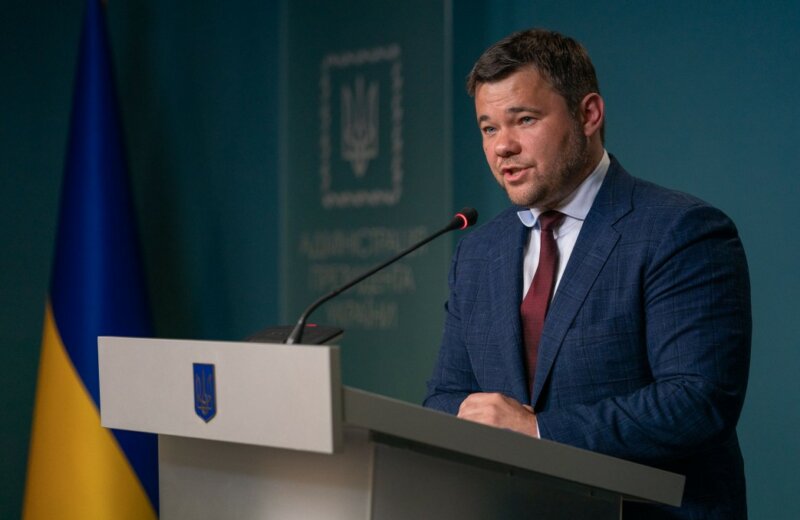The new Ukrainian parliament won’t be able to convene before September, according to Andriy Bohdan, head of President Volodymyr Zelensky’s office.
“The Verkhovna Rada (the Ukrainian Parliament) probably won’t be able to start working before Sept. 1,” he said at a briefing on July 30. “It’s not up to us – it depends on the large number of lawsuits that prevent the Central Election Commission from forming the final composition of the Verkhovna Rada that awaits us.”
The Central Election Commission published the results of Ukraine’s snap parliamentary elections on July 26, but it cannot create the final list of lawmakers until all lawsuits challenging the results are settled. Several electoral districts may undergo vote recounts, according to the Opora election watchdog.
Zelensky’s Servant of the People party took first place in the election with 43.16 percent of the vote, giving it 254 seats in the 424-member parliament, including 130 elected in single-member districts. This gives Zelensky’s party an absolute majority and nearly full power in the legislative branch.
Members of the party repeatedly said that they would like to hold the first session of the new parliament on Aug. 24, Ukraine’s Independence Day. But, on July 25, party chief Dmytro Razumkov said that the date might move to the beginning of September.
“I hope that it will be the end of August or the start of September. The optimistic option is the one proposed by the president – Aug. 24. But we’ll see how the events unfold. No final date is set,” Razumkov told the Interfax-Ukraine news agency on July 25.
The second-largest faction in the new parliament will be the pro-Kremlin Opposition Platform – For Life party, which received 13.05 percent of the vote, giving it 43 seats.
Former Prime Minister Yulia Tymoshenko’s Batkivshchyna party placed third with 8.18 percent of the vote and 26 seats. Former President Petro Poroshenko’s European Solidarity party was next with 8.10-percent support and 25 seats.
The final party to pass the 5 percent minimum threshold was rock star Svyatoslav Vakarchuk’s Voice (Golos) party, which took 5.8 percent of the vote and 20 seats. The remaining 56 lawmakers were elected in single-member districts from other parties or as independent candidates.



